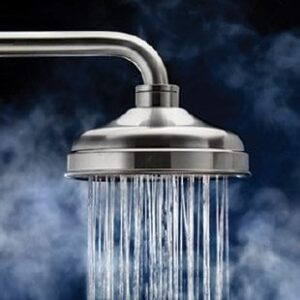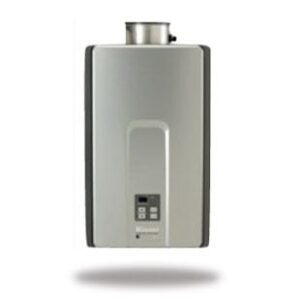Need a New Water Heater? Here Are Four Questions to Ask.
Is your water heater nearing the end of its useful life? Or are you ready to upgrade to a more energy-efficient model? Then it may be time to start looking for a new system.
Here are four things to consider before you begin your search:

If you’re running a busy household, the last thing you want is to run out of hot water.
This is actually a common problem, and you may have been thinking about replacing or
upgrading your existing equipment to a more energy-efficient model.
There are a lot of options out there, and it can all be a little confusing. Ultimately
you want the best possible solution for your family, and that’s where Reliance can help.
When you begin to look for a new water heating solution, there are a few
things that you’ll need to consider to help ensure that it will meet all of your needs.
If your home is heated by electricity,
there’s a good chance your water heater will need to be electric too.
Electric tanks are also a good option when it may be too complicated, or impossible,
to run natural gas or propane lines into your home, or to install the necessary venting.
Natural gas water heaters will cost more than electric models
at the outset, but they usually offer savings in the long run. Depending on local energy prices,
natural gas can be one of the most economical ways to heat your home’s water.
Propane gas water heaters may also be your only alternative for a gas heater if you
live in a rural area without natural gas lines. Understanding just how much hot water your family
normally uses is an important step in determining the size and type of heater you may require.
You’ll need to consider the number of people in your household,
the type and number of water-consuming appliances in your home, as well as your family’s lifestyle.
A water heater that is too small will not be able to keep up with the demand, which could
decrease your unit’s life expectancy and leave you without hot water when you most need it.
Traditional storage tank water heaters are still the most common type
and have been around for generations. They’re affordable and easy to use,
as they simply heat the water and store it in an insulated tank until it’s needed.
A typical household tank would hold 40 to 60 gallons. The efficiency of these units can vary
depending on the model and the fuel source – so be sure to ask about Energy Star® certified models.
Tankless systems, on the other hand, heat water on-demand using a heat exchanger,
which is fueled by either natural gas or propane. The heat is activated automatically,
as soon as you turn on a hot water tap or if one of your appliances requires it – and
because tankless systems are smaller, more efficient, there are some clear advantages.
They are durable, long-lasting appliances that conveniently allow for replacement parts.
Your family will enjoy an endless stream of hot water, whenever they need it.
They’re a great space-saving option.
They can also help to reduce utility costs since the system
isn’t using energy to maintain the temperature of stored water.
And because they are more energy-efficient, they’re a better choice for the environment.
A new water heater is an important investment for your family’s comfort – and while buying
can make sense for some homeowners, many Canadians prefer the peace-of-mind
and flexibility that comes with renting their water heater from Reliance.
You’ll get ongoing 24/7 live support
No charge for repairs
Service as soon as same-day, including weekends and holidays
And all for one affordable, monthly payment.
To book your FREE in-home consultation today, Call on Reliance™.
What’s Your Fuel Source?
Most water heaters are powered by electricity, natural gas, or propane. All can supply your family with a reliable flow of hot water, but there are a few key differences.
Electric Water Heaters: If your home is heated by electricity, there’s a good chance your water heater will need to be electric too. They also are a good option when it is complicated or impossible to install the necessary venting for a natural gas or propane gas water heater.
Natural Gas Water Heaters: Natural gas water heaters cost more than electric, but they usually offer savings in the long-run. Depending on local energy prices, natural gas can be one of the most economical ways to heat your home’s water.
Propane Gas Water Heaters: Propane gas water heaters offer all the benefits of natural gas. But since propane burns cleaner, it is a more environmentally-friendly option.

Tank or Tankless?
If it’s been a while since you looked at water heaters, you may have noticed that technology has changed. Here’s what you need to know:
Tank Water Heaters: Traditional storage tank water heaters are still the most common type. These units store hot water in an insulated tank. The upfront investment in a storage tank water heater is generally less than for a tankless unit, but efficiency can vary depending on the unit and fuel source. Ask us about our ENERGY STAR® certified models!
Tankless Water Heaters: Tankless water heaters do not store heated water. Instead, water passes through a heat exchanger, providing hot water on demand. A tankless water heater can reduce energy consumption, and since the unit is installed on a wall it frees up floor space – making tankless a great choice for small basements.

How Much Hot Water Does Your Family Use?
Whether it’s tank or tankless, the best water heater is one that is reliable, efficient, and worry-free. A water heater that is too small will not be able to keep up with demand, which could decrease your unit’s life-expectancy and leave you without hot water when you need it.
That’s why it’s important to understand your hot water needs. You’ll need to consider the size of your family, the type and number of water consuming appliances in your home, as well as your lifestyle.
Sound complicated? Your Reliance™ Home Comfort Advisor can help determine the right water heater for your family and walk you through your options

Rent or Buy?
A water heater is an important investment in your family’s comfort. While buying can make sense for some homeowners, many Canadians prefer the peace of mind and flexibility that comes with renting their water heater from Reliance™:
-
- Live support 24 / 7 / 365
- No charge for repairs
- Same-day service, including weekends and holidays
- One affordable, monthly payment
If you’ve got more water heater questions, or are ready to learn more about our water heater models, your local Reliance™ Home Comfort Advisor can help. Contact us today.








